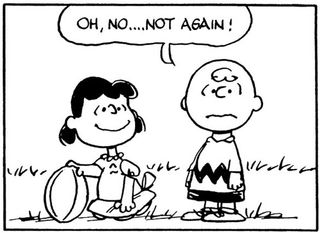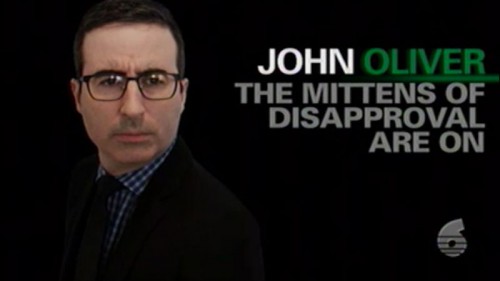
For anyone who went to college in the last quarter of the 20th century you’ll be well aware of the rise of what was called “moral relativism”, i.e. the loss of absolute standards of right or wrong and the rise of the moral choice or preference of the individual. Equally esteemed or feared, particularly within Christian circles, this do-it-yourself morality was the talk of the nation.
The moral winds, though, appear to be shifting. And in a recent opinion piece David Brooks suggests that the once formidable doctrine of moral relativism has slowly become a passing fad with the increase of communication offered by the internet and social networks. Instead, a new socially determined morality of shame and exclusion is rising to prominence. Brooks writes, “Moral life is not built on the continuum of right and wrong; it’s built on the continuum of inclusion and exclusion”. The guide for right or wrong is no longer one’s conscience, but what the community says about you, either in honor or shame.
 So what does this mean for how morality and feelings of shame function today? It suggests that morality is now much more socially defined in a way which contradicts the earlier thought that whatever works for you is fine. Whether you are acceptable or moral is now told to you by others. Or in Mockingbird terms, it’s no longer a matter of having a clean conscience, but your “righteousness” is determined within the omnipresent social, lowercase-laws that confront us everyday. (We’ve talked about this a few times before, to say the least!)
So what does this mean for how morality and feelings of shame function today? It suggests that morality is now much more socially defined in a way which contradicts the earlier thought that whatever works for you is fine. Whether you are acceptable or moral is now told to you by others. Or in Mockingbird terms, it’s no longer a matter of having a clean conscience, but your “righteousness” is determined within the omnipresent social, lowercase-laws that confront us everyday. (We’ve talked about this a few times before, to say the least!)
The implications of this shift are many and if they seem to be obvious or common-sense, then it reflects just how pervasive the shame culture already is. One effect this socially-constructed moral conscience has is that if you do, in fact, measure up, then you will ensure that everyone knows about it. As Brooks says, “members of a group lavish one another with praise so that they themselves might be accepted and praised in turn.” If you shop at Wholefoods you proudly display your reusable shopping bags for all to see as you walk (or bike) to and from the store. If you exercise regularly, you make sure your app links to facebook to announce your health righteousness. If you support the “correct” candidate for president, you tweet New York Times or Fox News articles to the collective judge of respectability.
This strong degree of group-think leads to vigorous punishment of transgressors as one is policed by the group and condemned if the group code is broken. The viciousness of this reality cannot be understated. Online bullying is but a symptom of this greater trend toward a public morality of shame and exclusion. College campuses in particular, given the close-knit nature of residential learning, have become puritanical in their coercive enforcement of the acceptable. Professors are unable to teach freely, but are bound by the social code of the students. Students, likewise, are unable to test out potentially disrespected thoughts. It’s a mess, to say the least, but this is just as true of small towns or churches or fitness clubs (or for that matter, blogs!)
The fickleness of this socially-determined morality only makes this worse, of course. Just ask any vegan whether honey is an acceptable food and you’ll get more than you bargained for.

The ubiquity of social shame leads not only to public boasting, but also to a great deal of hiding and anxiety that one’s misdeeds might be uncovered and the wrath of the mob will be unleashed against you for all the world to see. It’s better to not say anything than to be assessed by the mob. It’s better to lie than admit you voted for George Bush for president (or Al Gore, depending on the group-think you are subject to). It’s better to cultivate friends who only agree with you. Better to just go along with whatever movement is sweeping the web.
Brooks’ solution to all this chaos is music to the heavy-laden sufferer’s ears. The only way to silence the judgment of social shaming is:
“people’s identities have to be based on standards of justice and virtue that are deeper and more permanent than the shifting fancy of the crowd. In an era of omnipresent social media, it’s probably doubly important to name your own personal True North [!!!], vision of an ultimate good, which is worth defending even at the cost of unpopularity and exclusion”
 If “your own personal” ethic sounds like a return to moral relativism, I suggest you read the above again; it is much, much more. Brooks more than implies here that the antidote to our anxiety or pride over social righteousness is to have that righteousness determined by some thing or some One else; to have such a strong sense of fidelity to something or some One that all else pales in comparison to that external verdict. Or in St. Paul’s own self-description, “I count everything as loss because of the surpassing worth of knowing Christ Jesus my Lord. For his sake I have suffered the loss of all things and count them as rubbish, in order that I may gain Christ”.
If “your own personal” ethic sounds like a return to moral relativism, I suggest you read the above again; it is much, much more. Brooks more than implies here that the antidote to our anxiety or pride over social righteousness is to have that righteousness determined by some thing or some One else; to have such a strong sense of fidelity to something or some One that all else pales in comparison to that external verdict. Or in St. Paul’s own self-description, “I count everything as loss because of the surpassing worth of knowing Christ Jesus my Lord. For his sake I have suffered the loss of all things and count them as rubbish, in order that I may gain Christ”.
The dualism of this account may seem harsh or unjustified. But to those who have been excluded through social shame, those who live in a constant state of anxiety, those who have been attacked by the world for transgression, it’s good news indeed to hear that all that doesn’t matter. There is a place where we will never be ashamed.

COMMENTS
Leave a Reply












